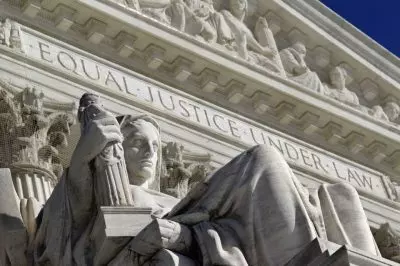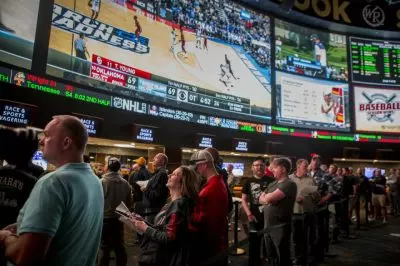 Yesterday, the US Supreme Court declined to hear a case over whether the major professional sports leagues and the National Collegiate Athletic Association (NCAA) have to pay millions to the New Jersey Thoroughbred Horsemen’s Association. The lawsuit is to now head back to federal court in New Jersey where a judge is to take evidence provided by both parties into consideration and make a decision how much the professional sports leagues would have to pay.
Yesterday, the US Supreme Court declined to hear a case over whether the major professional sports leagues and the National Collegiate Athletic Association (NCAA) have to pay millions to the New Jersey Thoroughbred Horsemen’s Association. The lawsuit is to now head back to federal court in New Jersey where a judge is to take evidence provided by both parties into consideration and make a decision how much the professional sports leagues would have to pay.
The federal judge, who is to hear the two sides’ testimony, will have to determine the worth of damages suffered by the horsemen’s association and the money it will actually receive. The Association has claimed that it lost sports betting revenue worth $150 million.
The decision of the US Supreme Court not to hear the lawsuit involving the horsemen’s association and the professional sports leagues was included in a list with court decisions from its conferencing session on May 15th and was published on May 18th.
The original lawsuit alleged that the NCAA and the professional sports leagues owed the Association a bond of $3.4 million, plus interest. The bond was put up by the leagues back in 2014 to guarantee payments in case the Association suffered losses during the month in which the track was unable to offer sports betting services because of a judge’s restraining order.
In December 2019, the 3rd US Circuit Court of Appeals ruled in favor of the horsemen’s association. The professional sports leagues, however, appealed this ruling.
US Supreme Court Ruled in Favor of Sports Betting in May 2018
 Although the lawsuit involves a sports betting ruling, it will have no legal effect on the legalized sports betting sector in the state. Two years ago, it was exactly the US Supreme Court that ruled in favor of sports betting and lifted the federal ban on the activity that had been imposed by the Professional and Amateur Sports Protection Act of 1992 (PASPA).
Although the lawsuit involves a sports betting ruling, it will have no legal effect on the legalized sports betting sector in the state. Two years ago, it was exactly the US Supreme Court that ruled in favor of sports betting and lifted the federal ban on the activity that had been imposed by the Professional and Amateur Sports Protection Act of 1992 (PASPA).
At the time when the PASPA case was taken to the US Supreme Court, the state of New Jersey and then-Governor Chris Christie had challenged the Act as it suspended legal sports betting across the US. The court’s ruling made it possible not only for New Jersey but for other US states to decide for themselves whether or not to authorize sports betting.
Only a month after the US Supreme Court ruling, which lifted the federal ban on sports betting services and expanded the country’s legal gambling sector, the Governor of New Jersey, Phil Murphy, placed the first official bets at the racetrack that is involved in the ongoing lawsuit, Monmouth Park.
As mentioned above, the association of the horsemen is seeking millions from professional sports leagues as it finds itself to have been “wrongfully” adjured in the original lawsuit. According to the ruling of the 3rd Circuit Court of Appeals in December last year, a party is wrongfully enjoined when it is proven that it had always had a right it was stripped of. Now that the case is returning to a New Jersey federal court, the amount that the horsemen’s association will potentially receive is set to be determined.